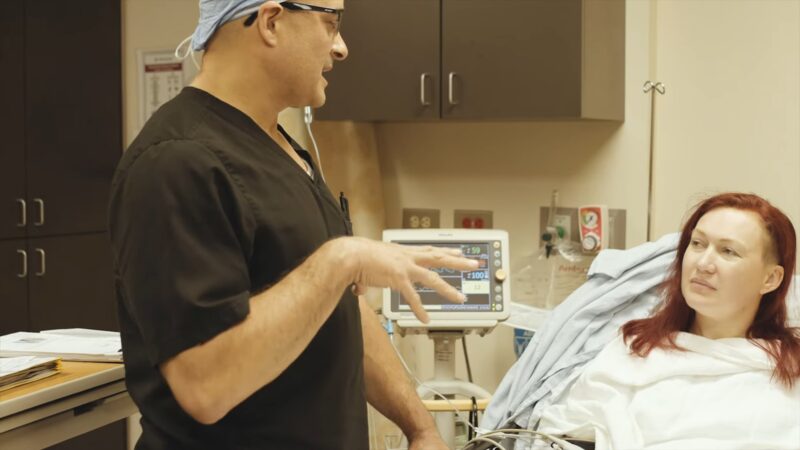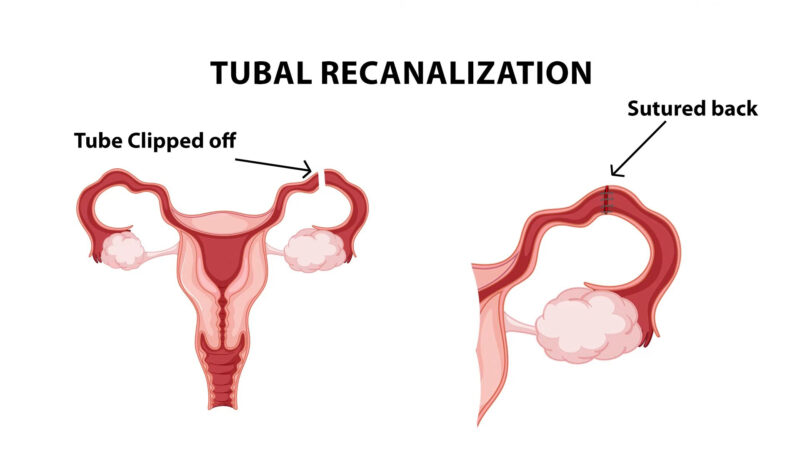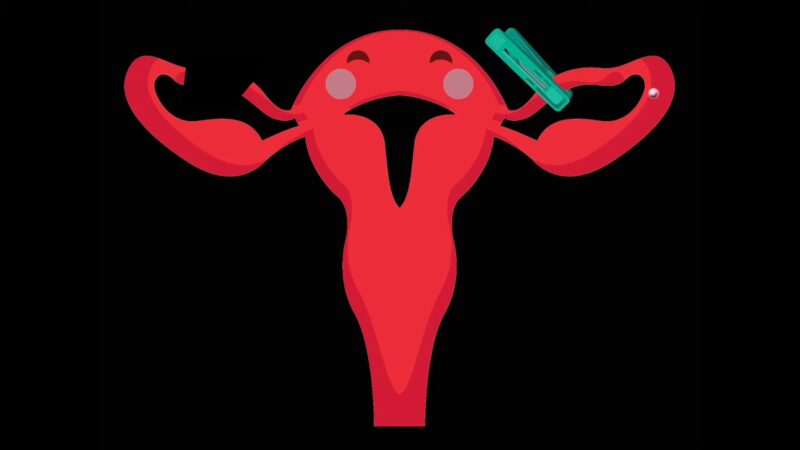Blocked fallopian tubes can be a significant concern for many women, especially those trying to conceive. When the fallopian tubes are blocked, it prevents the sperm from reaching the egg, making natural conception challenging.
However, the good news is that there are ways to unblock these tubes and restore fertility. In this article, we’ll get into the causes of blocked fallopian tubes, the methods to unblock them, and the success rates of these procedures. Fallopian tubes play a crucial role in the reproductive system.
They serve as the pathway for the egg to travel from the ovaries to the uterus. When these tubes are blocked, it can prevent conception.
Fallopian tubes are two thin tubes, one on each side of the uterus, that help lead the mature egg from the ovaries to the uterus. When an obstruction prevents the egg from traveling down the tube, a woman has a blocked fallopian tube.
It can occur on one or both sides and is the cause of infertility in up to 30% of infertile women.
How Do They Function in Conception?
For conception to occur, the sperm must travel up the fallopian tubes to meet the egg. This meeting, known as fertilization, usually takes place in the fallopian tubes.
Once fertilized, the egg continues its journey to the uterus, where it implants itself and begins to grow. If the tubes are blocked, this process is interrupted, preventing pregnancy.
Causes of Blocked Fallopian Tubes
There are several reasons why fallopian tubes may become blocked, ranging from surgical interventions to natural causes.
Blocked by Surgery
A common cause of blocked fallopian tubes is when women have elected to have a tubal ligation. A tubal ligation is a surgery that purposefully blocks a woman’s fallopian tubes, such as inserting clips or rings.
This prevents a woman’s eggs from being fertilized by sperm, thereby sterilizing her. According to the Mayo Clinic, tubal ligation is a type of permanent birth control where the fallopian tubes are cut, tied, or blocked to permanently prevent pregnancy.
Blocked by Scar Tissue
Blocked fallopian tubes can also be naturally caused by scar tissue that has developed in the fallopian tubes. Pelvic infections, abdominal infections, endometriosis, ectopic pregnancies, and salpingitis isthmica nodosa (SIN) can cause scar tissue in the fallopian tubes.
This scar tissue can prevent the egg and sperm from meeting, making fertilization impossible.
Treatment Options
The treatment for blocked fallopian tubes depends on the cause and location of the blockage. Some blockages can be treated with medication, while others may require surgery.
Can Blocked be Unblocked?
Yes, in many cases, blocked fallopian tubes can be unblocked. The type of treatment largely depends on the cause of the blockage.
For instance, if the tubes are blocked due to a tubal ligation, a reversal surgery can be performed.
What Is Tubal Reversal Surgery?

Tubal reversal surgery is a procedure that aims to restore fertility after a woman has had a tubal ligation. During this surgery, the blocked portions of the fallopian tubes are removed, and the open sections are reconnected.
This allows the egg to pass through the fallopian tube once again, making natural conception possible. Dr. Morice specializes in outpatient microsurgical tubal reversal surgery, which lasts about 90 minutes.
Success Rates and Considerations
While unblocking fallopian tubes can pave the way for natural conception, it’s essential to understand the success rates and other considerations associated with these procedures.
What Are The Success Rates?
The success rate of unblocking fallopian tubes largely depends on the cause of the blockage and the age of the woman. On average, the pregnancy success rate after a tubal reversal surgery for women under 40 is 70%.
However, it’s essential to consult with a specialist to understand individual chances better.
Factors Affecting Success Rates
Several factors can influence the success rate of unblocking fallopian tubes. These include the type of blockage, the location of the blockage, the age of the woman, and her overall reproductive health.
For instance, tubal ligation reversal might have a higher success rate than treating blockages caused by scar tissue.
Risks and Complications

While the prospect of unblocking fallopian tubes can be hopeful for many, it’s essential to be aware of the potential risks and complications associated with the procedures.
Potential Risks of Tubal Reversal Surgery
Like any surgical procedure, tubal reversal surgery comes with its set of risks. Some of these include:
- Damage to the bowel, bladder, or major blood vessels.
- Reaction to anesthesia.
- Improper wound healing or infection.
- Continued pelvic or abdominal pain.
- Failure of the procedure results in a future unwanted pregnancy.
According to the Mayo Clinic, factors that might increase the risk of complications include a history of pelvic or abdominal surgery, obesity, and diabetes.
Understanding Ectopic Pregnancy
One significant risk after undergoing a procedure to unblock fallopian tubes is an ectopic pregnancy. This occurs when a fertilized egg implants itself outside the uterus, usually in the fallopian tube.
Ectopic pregnancies are medical emergencies, as they can cause the fallopian tube to rupture, leading to internal bleeding. It’s crucial to be aware of this risk and seek immediate medical attention if you suspect an ectopic pregnancy.
Post-Surgery Care and Recovery
After undergoing a procedure to unblock fallopian tubes, proper post-surgery care is crucial to ensure a smooth recovery and optimal results.
Immediate Post-Surgery Care
After the procedure, patients might experience some discomfort at the incision site, abdominal pain, fatigue, dizziness, or shoulder pain. It’s essential to follow the doctor’s advice on pain management and be aware of any signs of complications.
FAQs
Can IVF be an option if my tubes are blocked?
Yes, in vitro fertilization (IVF) bypasses the fallopian tubes entirely. If tubal unblocking procedures are not successful or not recommended, IVF can be a viable option for achieving pregnancy.
How can I prevent fallopian tube blockages?
Preventing pelvic inflammatory disease (PID), which is often caused by sexually transmitted infections, can reduce the risk of fallopian tube blockages. Regular screenings, practicing safe sex, and early treatment of any pelvic infections can help in prevention.
Can both fallopian tubes be blocked?
Yes, it’s possible for both fallopian tubes to be blocked. This condition is known as bilateral tubal occlusion. When both tubes are blocked, natural conception becomes very challenging.
Are there any non-surgical methods to unblock fallopian tubes?
While surgical methods are the most common treatments for blocked fallopian tubes, some alternative therapies, such as herbal remedies and pelvic physical therapy, claim to help. However, their efficacy is not well-documented, and it’s essential to consult with a healthcare professional before trying any alternative treatments.
How soon after unblocking my tubes can I try to conceive?
It’s generally recommended to wait for one to three months after the procedure before trying to conceive. However, always consult with your doctor for personalized advice.
Final Words
Blocked fallopian tubes can be a significant hurdle in a woman’s journey to motherhood. However, with advancements in medical science, there are now multiple avenues to address this challenge.
Whether through surgical interventions, alternative therapies, or assisted reproductive technologies like IVF, hope abounds. Always consult with a fertility specialist to understand your unique situation and the best path forward.
